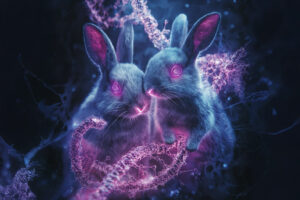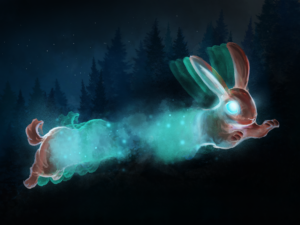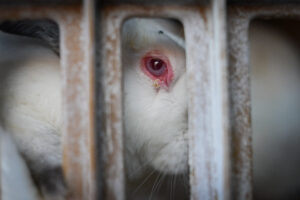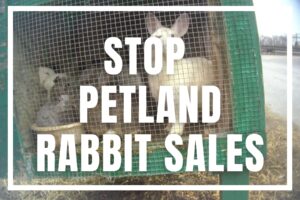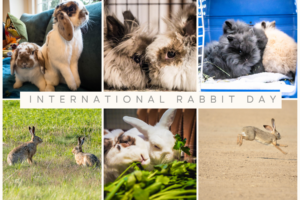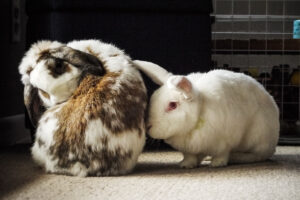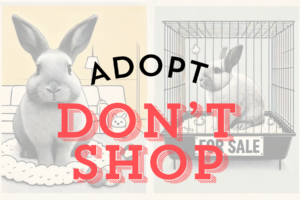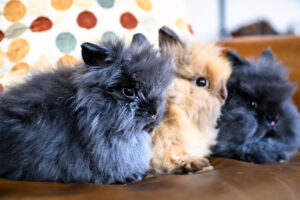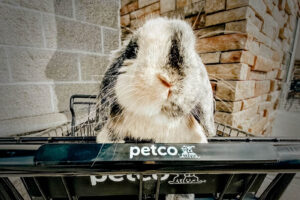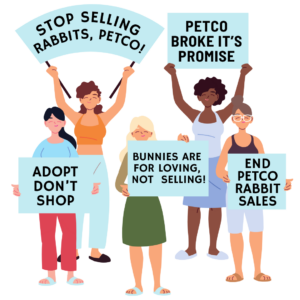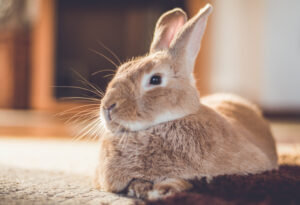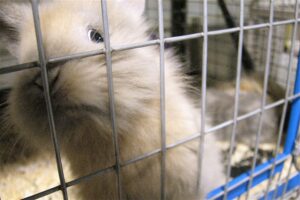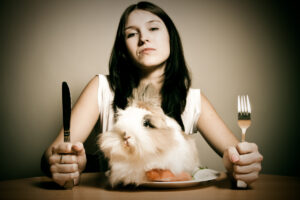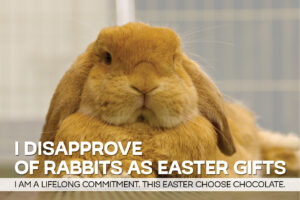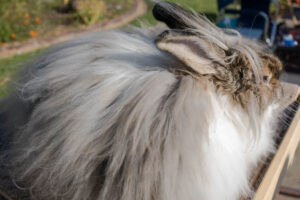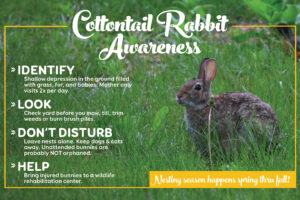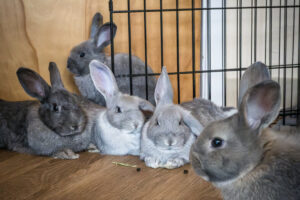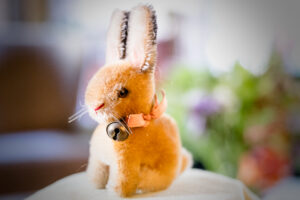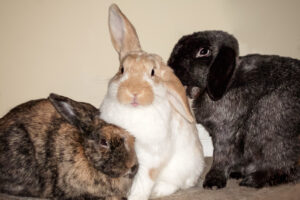Activism
The Rabbit.org Foundation opposes the breeding, raising, or promotion of rabbits for food purposes or any other commercial or exploitative purposes. Our complete set of position statements will be coming soon.
Biohacking has the potential to revolutionize science, but its success should not be defined by spectacle or shock value—it must be measured by meaningful advancements that respect animal autonomy, protect vulnerable species, and prioritize compassion over human curiosity.
“Rabbits are not commodities,” says Paige K. Parsons, President of The Rabbit.org Foundation. “Genetic modification for profit ignores their welfare and fuels reckless breeding. This sets a dangerous precedent for animal exploitation.”
The Humane Pet Store Bill (S2511/A4051) is a critical piece of pending legislation in New […]
Sign the change.org petition. For years, animal welfare advocates have raised serious concerns about Petland’s […]
International Rabbit Day, observed on the fourth Saturday of September each year, is a chance to promote rabbit welfare and education.
September 24, 2024 We are thrilled to announce that Petco has made the compassionate decision […]
The Alliance to Stop Rabbit Sales at Petco is a coalition of over 100 independent rabbit rescue and welfare organizations and bunny influencers united to end the sale of rabbits at Petco stores nationwide.
9/24 Update: A Heartfelt Thank You: Petco Ends Rabbit Sales Thanks to United Effort The […]
9/24 Update: A Heartfelt Thank You: Petco Ends Rabbit Sales Thanks to United Effort Animal […]
9/24/24 Update: A Heartfelt Thank You: Petco Ends Rabbit Sales Thanks to United Effort [Date] […]
9/24 Update: A Heartfelt Thank You: Petco Ends Rabbit Sales Thanks to United Effort Petco […]
Oakland Animal Services’ transfer of rabbits to Carters pet stores through Stockton Animal Shelter raises concerns over inadequate adoption protocols and rabbit welfare, prompting a call for immediate action.
By choosing to adopt from a rescue, individuals can make a positive impact on the lives of these vulnerable animals and help foster a culture of compassion and responsibility.
We often receive inquiries about domestic rabbit neglect and abuse. Sadly, we hear of rabbits […]
A letter to help you reach out to pet stores that still sell rabbits.
A letter template for writing to your local grocery store.
A sample letter template for you to modify.
Giving rabbits as Easter gifts can be problematic for several reasons, making chocolate rabbits a more suitable choice for the occasion.
With Easter so close it’s important to realize that rabbits do not make good “starter” pets for children.
Unfortunately, because rabbits usually are so silent, it is easy for most people to fail to recognize their suffering.
Cottontail rabbit nesting season usually runs from late February to September, with peak births from March to July.
Inhumane and brutal are words that describe the slaughter of rabbits for food. Trigger warning: This article describes rabbit slaughter in detail.
Choosing not to breed rabbits is a responsible and compassionate decision. Here are five alarming reasons to avoid breeding and rabbit overpopulation.
A live rabbit at easter is a poor choice. Choose a stuffed bunny toy instead.
The problem with limit laws is that they focus on the quantity of animals rather than the quality of care.
